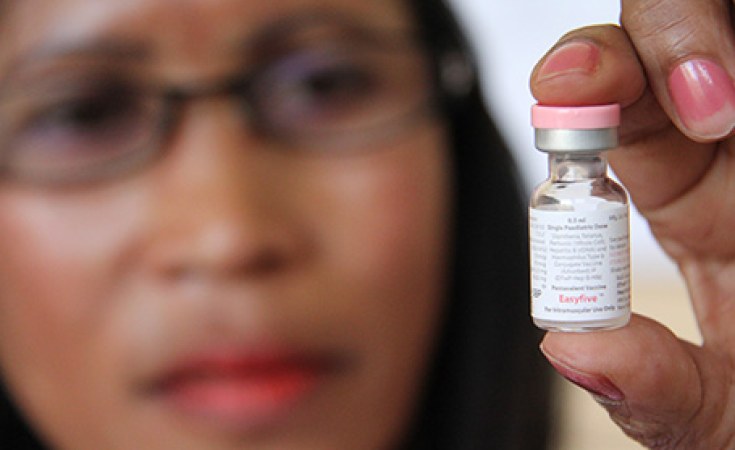Major public and private donors have pledged more than U.S.$4.3 billion to immunize at least 250 million of the world's poorest children against life-threatening diseases over the next five years and prevent more than four million premature deaths.
"It's absolutely brilliant value for money. For the price of a cup of coffee you can vaccinate a child," Andrew Mitchell, Britain's secretary of state for International Development, told a webcast press conference following a pledging conference on Monday. "As a result of what we've done today we will be able to vaccinate a quarter of a billion children in the poorest parts of the world."
The pledging conference was held by the GAVI Alliance, a Geneva-based public-private partnership aimed at improving health in the world's poorest countries.
GAVI said donors exceeded their initial target of U.S.$3.7 billion, enabling the alliance to reach more children faster than planned and to accelerate the introduction of new vaccines. The pledges bring GAVI's total available resources to $7.6 billion for the period 2011 to 2015.
"There are so many ways to look at the impact: the children who will get the vaccines, the children who won't be sick and will develop their full potential," Bill Gates, co-chair of the Bill & Melinda Gates Foundation, told reporters. "I like to think of it in terms of equity. This is the first time that we can say that poor children will not be refused the vaccines that children in rich countries get because there's not enough money."
The pledging conference included prime ministers, ministers and high-level officials from donor and developing countries, as well as CEOs from private companies, senior civil society leaders and leaders of United Nations agencies. The governments of the United Kingdom and Liberia, and the Bill & Melinda Gates Foundation, hosted the conference.
Australia increased its commitment ten-fold, while other governments - Britain, Sweden and Norway - more than doubled their previous commitments. New donors also joined in, including Japan and Brazil.
GAVI's largest corporate donor, "la Caixa" Foundation, extended its financial commitment. New donors Anglo American plc and Absolute Return for Kids (ARK) made their first pledges, GAVI said. The Gates Foundation contributed $1 billion.
"By pledging more than expected, leaders have given a huge boost to the world's poorest children. Millions will now survive common childhood illnesses like pneumonia and diarrhea, enabling them to grow up and fulfill their potential," Justin Forsyth, the chief executive of Save the Children, said in a statement.
He urged donors to live up to their promises. "The hard work begins now to keep these historic commitments on track and make sure the vaccines get to the children who need them most," Forsyth said.
GAVI said developing countries made commitments to maintain or increase the co-financing of their vaccine programs, leveraging partnerships to immunize their children. The total level of co-financing is expected to triple to U.S.$100 million by 2015, GAVI said.
Vaccine manufacturers announced last week they would contribute by offering lower prices on a range of life-saving vaccines supported by GAVI. This includes a two-thirds reduction on the rotavirus vaccine, which combats the leading cause of diarrhea deaths. Co-financing and lower prices will enhance the sustainability of immunization programs, GAVI said.


